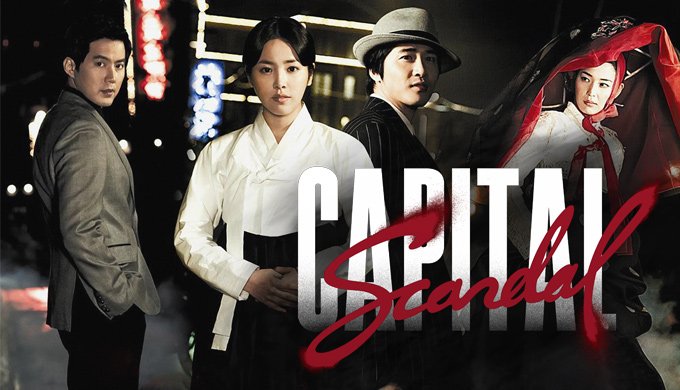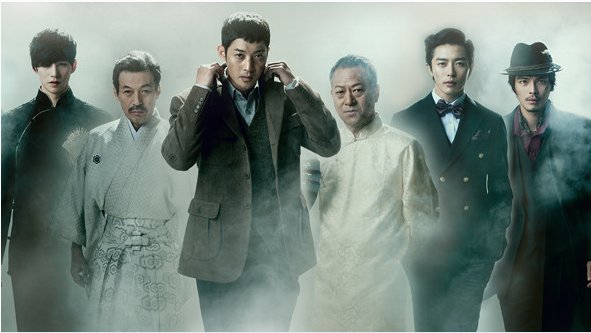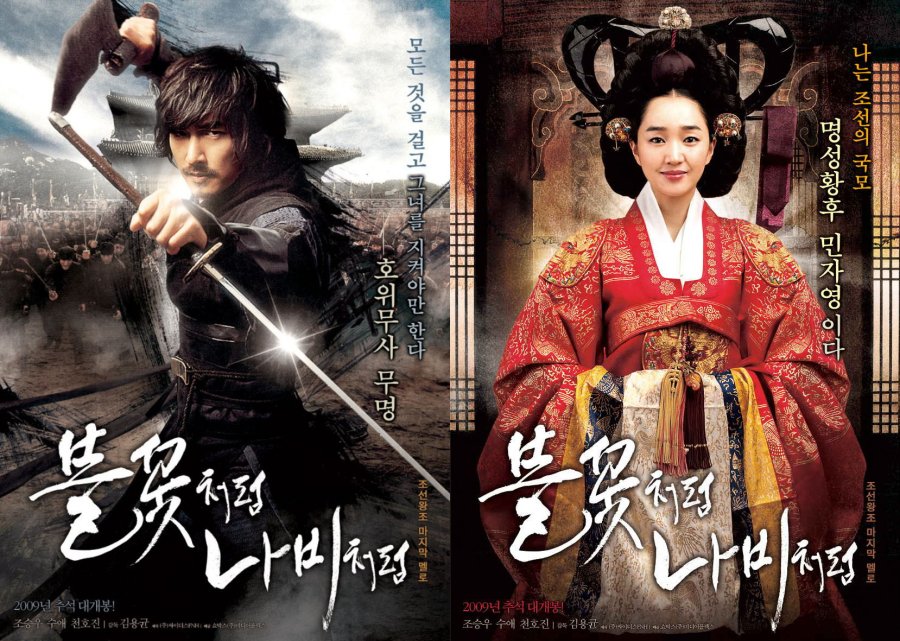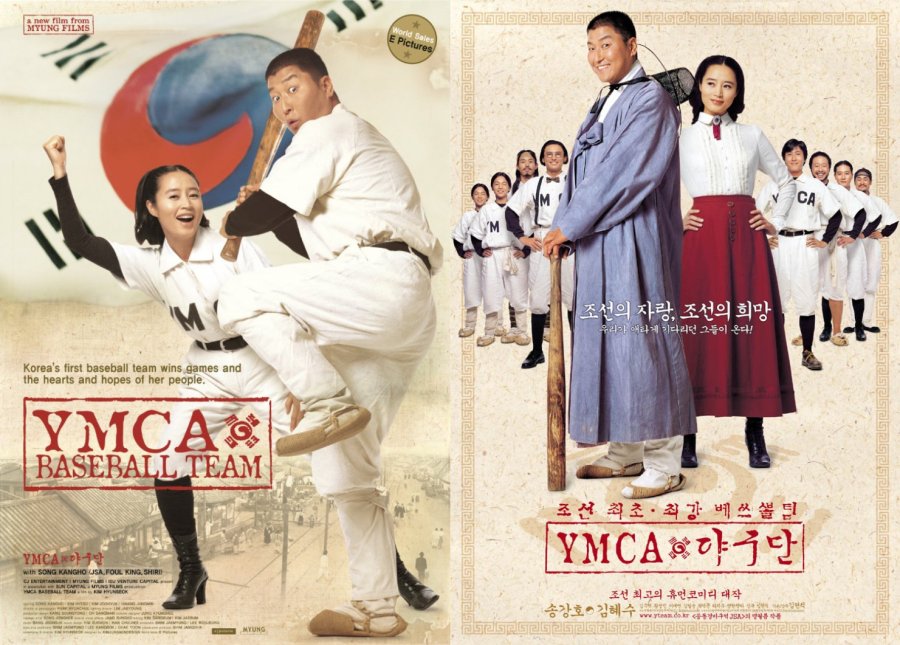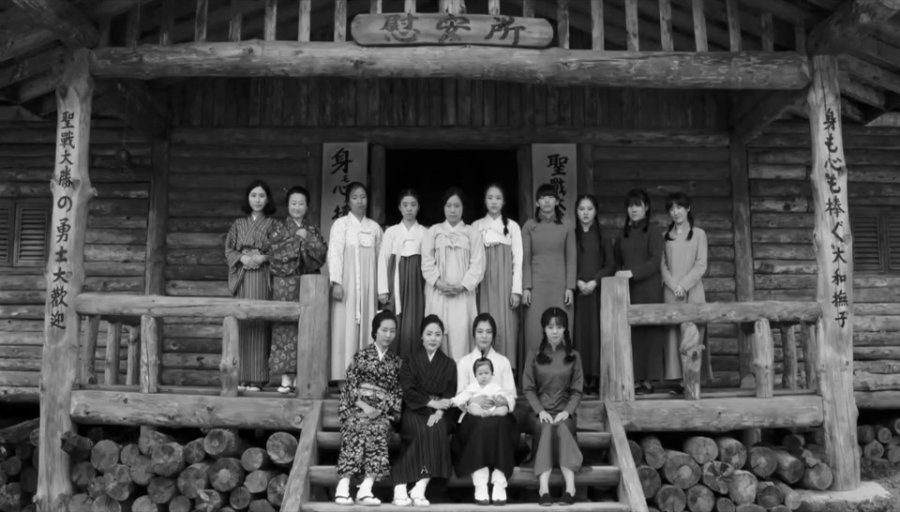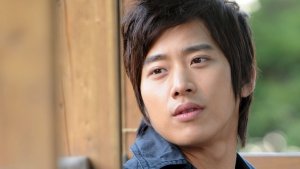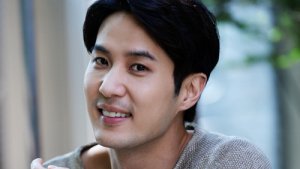 An Ultra Fan's Guide to Kim Ji Suk
An Ultra Fan's Guide to Kim Ji Suk
Japanese Occupation of Korea
1910-1945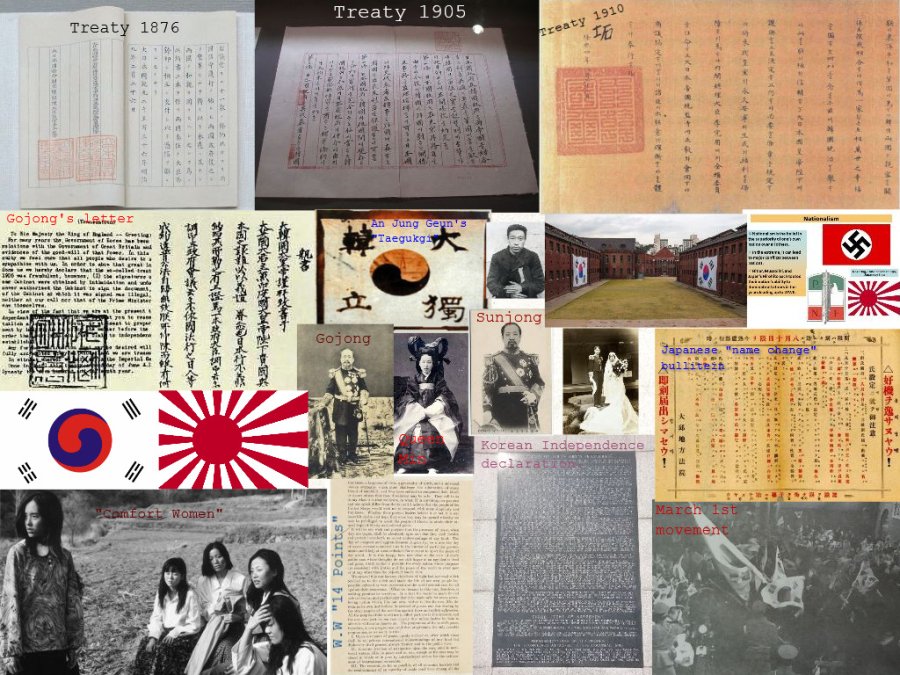
WARNING: The following subject may be sensitive to some!
~Since this article is quite long, I've split it into 2 parts~
History (Part 1: 1876-1920)
Korea under Japanese Rule Wikipedia
(all info in this article comes from Wikipedia & other various sources - all linked for you to easily access and read more about. I only included the more major and significant information).
1876: Japan-Korea Treaty
Also known as the Treaty of Ganghwa, this era was a time of political instability - the former king Daewongun clashed with the new King Gojong and his wife Queen Min (Empress Myeongseong). He wanted their shores to stay closed off to foreign powers whilst Gojong and Min wanted them to be open. Japan took advantage of this situation by use of "gunboat diplomacy" (threatening warfare with their naval ships if terms weren't met to their liking), thus forcing Korea to sign this unequal treaty, which also included 'extraterritoriality' for the Japanese (basically meaning they are free from the law (from what I understood - kinda like diplomatic immunity I think)). In addition, it forced the Korean government to open three ports to Japan, specifically Busan, Incheon, and Wonsan. Later the treaty led Korea to be annexed by Japan.
1895: Assassination of Queen MinIn October of 1895, Queen Min was assassinated by Japanese Ronin agents orchestrated by Miura Goro. Two pro-Japanese officers of Hullyeondae (a Korean army regiment established under Imperial Japanese direction who were loyal to Daewongun) named Woo Beom Seon and Yi Du Hwang led the Hullyeondae, surrounding and opening the gates of the palace for the Ronin agents. After the assassination, Gojong and his son Sunjong moved to the Russian legation in Seoul. The assassination has come to be known as the "Eulmi Incident" after four Korean government officials were declared traitors by King Gojong in 1896 for their alleged involvement in the assassination plot and were therefore known as the "Eulmi Four Traitors".
In 1897 Gojong returned to the palace and proclaimed the founding of the Korean Empire. A historian calls this assassination "a hideous event, crudely conceived and brutally executed", while another says the way in which Queen Min was murdered was "unspeakably barbaric". The assassination prompted 'Anti-Japanese' sentiment in Korea.
1905: Japan-Korea Treaty of 1905Also known as the Eulsa Treaty or the Protectorate Treaty, this treaty "deprived Korea of its diplomatic sovereignty" and made Korea a protectorate of Imperial Japan (stripped Korea of its rights as an independent nation). It was influenced by Imperial Japan's victory in the Russo-Japanese War in 1905. In order for this treaty to be signed, Itō Hirobumi ordered Japanese troops to encircle the palace where Gojong resided and threatened him to sign the treaty. Gojong still refused to sign, so they then threatened bodily harm if he still refused. The prime minister refused with shouting which led him to be locked away. The treaty went into effect only after five Korean ministers signed the treaty illegally. Gojong himself did not assent or sign the treaty. Gojong then sent several letters to foreign powers in hopes for support of the illegal signing to be abolished. He even sent secret emissaries to a convention to abolish this unequal illegal treaty, but they were refused entry. Yangban and commoners joined "righteous armies" who were against the treaty.
1907: Japan-Korea Treaty of 1907With this treaty, Korean internal affairs were placed under the guidance of a Japanese resident general. Since Korea had lost the right to conduct diplomatic exchanges with other countries because it was now a "protectorate state" due to the Eulsa Treaty, Gojong sent an envoy in secret to a conference in order to protest Japan's actions. In retaliation Japan made Emperor Gojong abdicate in favour of his son Sunjong. (Gojong was then confined to Deoksu Palace by the Japanese). Just short of a week later a new "agreement" was forced on the Korean government which stated that all high-ranking officials appointed to Korean governmental posts must be Japanese. This brought the internal government fully under Japan's control. The Korean army was also put under Japanese leadership, and the first battalion, who had been in charge of guarding the Emperor, was disbanded. In addition, nine new prisons were established, and these new prisons were to be headed by a Japanese governor and at least half of the prison staff would be Japanese from the level of head warden down.
Sunjong reigned for only three years before he was forced to "abdicate" and then basically imprisoned in Changdeokgung palace until he died in 1926.
1909: Assassination of Former Resident-General Ito HirobumiIto Hirobumi was killed by Korean independence activist An Jung Geun. An shot him three times as well as seriously injuring other Japanese officials by gunfire. After the shooting he yelled out for Korean independence in Russian and waved the Korean flag. An was then arrested by Russian guards and after a few days turned over to the Japanese authorities. He was quoted saying: "I have ventured to commit a serious crime, offering my life for my country. This is the behaviour of a noble-minded patriot." In court An insisted he be considered a prisoner of war, not a criminal, referring to himself as a lieutenant of the Korean resistance army. He also listed 15 reasons why he killed Ito. After six trials, An was sentenced to death; he requested that he be killed by a firing squad like prisoners of war would be but instead, he was hung like a common criminal. In Japan An is known as a terrorist and a criminal but in Korea, he is a national hero.
Min Woohyuk performed a song on Immortal Songs 2 portraying himself as An Jung Geun 'The Leopard of Kilimanjaro' (skip to 5:30 to see the performance).
1910: Japan-Korea Annexation TreatyThe Japan-Korea Treaty of 1910 declared the Empire of Japan to have all sovereignty over Korea. Gojong later calls this treaty "neugyak" which implies that the treaty was accomplished by coercion of Koreans by the Japanese. ["While the treaty was affixed with the national seal of the Korean Empire, Emperor Sunjong of Korea refused to sign the treaty as required under Korean law. The treaty was instead signed by Prime Minister Lee Wan-Yong of the Korean Empire, and Resident General Count Terauchi Masatake of the Empire of Japan."]
Gyeongbokgung, the Korean royal palace, was demolished during the occupation and more than 90% of the buildings were torn down. They levelled whatever still remained and built their Government-General Building on the site (1916-1926). Restoration of the palace was undertaken in 1990, the Government-General building was removed in 1996, and the palace, as well as other buildings, were reconstructed in their original locations and forms. (this place is mentioned in 'Chicago Typewriter' and of course, in any Colonial period drama this 'Government General building' will be seen.)
1911: Order No. 124In order to distinguish Japanese from Koreans, the Japanese made it a law that Koreans could not use names that could be confused with Japanese names. Any person who had a name like that was required to revert it back to their original name, and strict controls were placed on the registration of Japanese-style names for newborn children (this changed, however, in 1939).
1919: Gojong's Death and the March 1st MovementGojong died suddenly in January of 1919 at 67 years of age. Widespread speculation that Gojong was killed by poison administered by Japanese officials became accepted (credible since previous attempts were well known), and his death and funeral were a catalyst for the March 1st Movement for Korean independence from Japanese rule. The March 1st Movement (a.k.a the Manse Demonstrations or Samil Movement) was one of the earliest displays of Korean resistance to Japanese rule (it became a National holiday in Korea in 1949). It came as a result of the repressive nature of the colonial rule that started in 1905 and was encouraged by Woodrow Wilson's "14 Points" at the Paris Conference in January of 1919.
The demonstrations began at 2 pm on March 1st when 33 activists of the Samil movement got together and read the recently drafted Korean Declaration of Independence. The leaders of the movement signed the document and sent a copy to the Governor General. They then called to inform the police of their actions and were subsequently arrested. Massive crowds formed to listen to student Chung Jae Yong read the declaration. The crowds then formed into a peaceable procession that the Japanese military police tried to suppress. Other special delegates of the movement read the declaration in appointed places throughout the country at 2 pm the same day. As the processions grew larger and larger, the Japanese police couldn't control the crowds. Panicked, they called in the military and naval forces to quell the crowds. As the protests grew, suppression turned to violence, resulting in massacres and other atrocities. For example, police herded the people of one village into a locked church. They then set fire to the church and shot through the windows to ensure no one survived. Approximately 2 million Koreans participated in more than 1,500 demonstrations. A widely-cited historical account of the movement states that 7,509 people were killed, 15,849 wounded and 46,303 arrested. Japanese officials reported 553 people killed, 12,000 arrested, 158 wounded, and 8 police or military personnel killed in the weeks following March 1st. Many who were arrested were taken to Seodaemun prison where they faced torture or even death without trial.
The March 1st movement served as a catalyst for the growing Independence movement. Japanese officials hunted these activists down and drove many to flee to Manchuria, Shanghai, and other places in China in order to continue their activities. In addition, Koreans were only allowed limited freedom of the press. The Provisional Government of the Republic of Korea was established in April of 1919 and headquartered in China.
1920: Relaxation of Press Restrictions and the Battle of QingshanliAfter a policy change that resulted in a slight relaxation of restrictions on the press, two of the three major Korean daily newspapers, the Dong-a Ilbo and the Chosun Ilbo, were established in 1920.
The independence movement would continue in China, spurred by the March 1st Movement. Eventually, the Japanese army and Korean independence groups became engaged in a conflict on Chinese soil known as the Battle of Qingshanli in October of 1920.
~ History to be continued in Part 2 ~
Notes and Other Information
Korean Language: Accepted in the early part of the occupation and even taught but by 1943 teaching and speaking Korean was prohibited.
Colonial rule crimes:
- Tens of thousands of artefacts of cultural importance were lost to Japan
- Extracting and exploiting natural resources such as: raw materials(wood), food (mostly rice & fish), and mineral resources (coal and iron ore)
- Oppression of religion, forced labours, human experimentation & comfort women
Derogatory terms used by the Japanese:
- "Chosenjin" ('Joseon-jeng): Japanese word calling Koreans inferior to them
- "Yobo" - literally "Yeobo" (meaning "Honey" a term of endearment for Korean spouses); could also represent "Hello" (literally: Yeobo-saeyo). But the Japanese used it as a derogatory word to insult Koreans as a "lesser" race
They'd phrase insults like: "You - Joseonjeng" or "You - Yobo's" - very insulting and racially discriminating. When watching the dramas and films you always encounter them using the 'Jeseonjin' one - I've only heard the 'Yobo' one used in the drama Basketball.
Dramas
Bridal Mask (2012)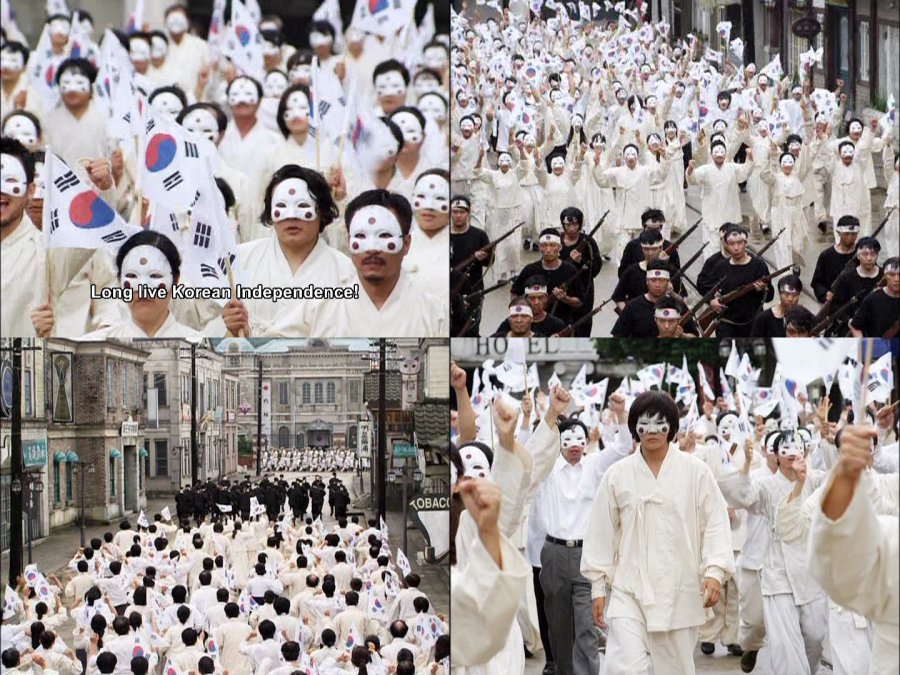
Trailer (spoiler free)
Set in the 1930's, our lead Lee Kang To is currently a "traitor to his people" working for the Japanese, but then because of things that happen to him, he starts to work under the guise of "Gaksital" (Bridal Mask) in order to avenge those who killed his father. That being his sole motivation, he finally realises what his people have been going through and truly becomes a fighter for his people. He takes up the true meaning of a freedom fighter. He is reunited with the girl from his past and enjoys his time around her even though she doesn't know who he really is. The people see him as a "lackey" for the Japanese not knowing that he lives a double life. He has a strained friendship with a Japanese man. It's my favourite drama in this time period - I've seen it five times fully through. And it seems every time I re-watch it I feel like re-watching it all over again lol - it's the drama I've watched the most. And unlike many viewers, I really like the lead female Mok Dan and the romance. ^^
Quotes:
Kang To - "If you live like this will the world change? The great Japanese empire said since Joseon isn't enough they are going to conquer even Manchuria and China. Isn't that like throwing eggs at a stone?"
Damsari (independence leader) - "Of course it looks useless. One layer of eggshell, once thrown at a stone, of course, it will break. But, no matter how hard the stone is, it's dead. And no matter how weak an egg is, it's alive. As years pass by, the stone will crumble and become sand. But someday, a chick will hatch from that egg and step on that sand. The day when the killing and the oppression from the violent Japanese empire, who can't win against an egg, will definitely come."
Damsari - "Robbers broke into my home and treated my daughter and me like slaves. In order to stave off my daughter's hunger, should I let the robbers do what they want? If I filled her empty stomach like that, then my daughter and I would have admitted defeat and lived like animals."
"As long as there is the heart to save the nation, the Republic of Korea will continue to exist."
Capital Scandal (2007)
It's a comedy romance set during this turbulent time, where a playboy falls for a freedom fighter and realises just how deeply he is involved with not only her but the many other freedom fighters around him that he didn't know were there. He pursues the main girl because of a bet but eventually falls for her. The story is deeper than it seems at first and will pull you in more as you get further into it. It also shows you how not all is as it seems - people can live two lives and have one goal. You can't always read a book by its cover.
Quotes:
"A racial characteristic of Joseon people is that the harder you stomp on them, the straighter they will stand."
Basketball (2013)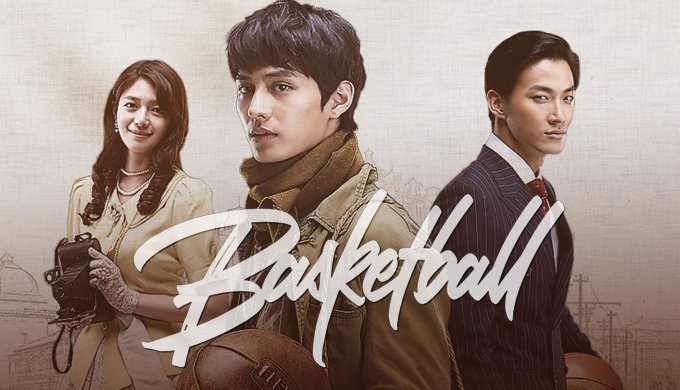
When young men dream of being successful in their pursuit of basketball, they realise just how misused they are and how they could never be successful as long as they are in an occupied country without their own freedom. They are constantly pushed down and backed away from their dreams. No matter how hard they push forward they keep getting thrown back until they decide to fight back. Don't let the title mislead you, it's much more about the time period than it is about basketball in itself. Basketball was the biggest sport next to soccer during that time and our leads love that sport and are involved in it professionally - hence the name. Once again there is also a love triangle (I am personally not a fan of love triangles so I tend to speak of them negatively). I liked Kang San, even though in the beginning he was going on the wrong path, but by episode 8 or so the story started to pick up. I never warmed up to Chi Ho - he came off as arrogant and judgmental and it seemed like everything he did (whether good or bad) was for show - as if he was showing off to the girl and to others. It didn't seem sincere. And the lead girl was very fickle, so I couldn't like her very much. The story is also a bit dull and not too engaging. I had to force myself through the first 7 or so episodes and then it got easier to watch and held my interest more. Also if you watch this keep in mind the ending is... well... strange... it just ends... without what I would call a real finish... :/
Quotes:
"Because I wanted to live with my mother and was sick and tired of living apart from her, I only believed what they told me of being successful. So I closed my eyes and shut my ears to everything around me. It took me suffering to wake up and realise it."
"Becoming successful, I realised, may not be the most important thing in life."
Chicago Typewriter (2017)
A writer and freedom fighters from the 1930's are reincarnated in the future but still hold memories in a dream-like form of their past. They are randomly reunited and their past is dug up more and more by the use of a typewriter and the man who occupies it. It's a bit of comedy mixed with intensity. I enjoyed the mystery of it. In the 1930's their independence fighter group is known as 'Joseon Youth Alliance' but I believe it was based on the 'Heroic Corps' fighters (if you read it, it sounds like what happens in the drama - don't read unless you've seen the drama as it can be a spoiler). If anyone happens to know if they based it off of an actual group do let me know. I know this drama mentions the death of one revolutionary activist at one point, and I remember reading about that person but I can't find it now or I'd link it for you.
Freedom Fighter, Lee Hoe Young (2010)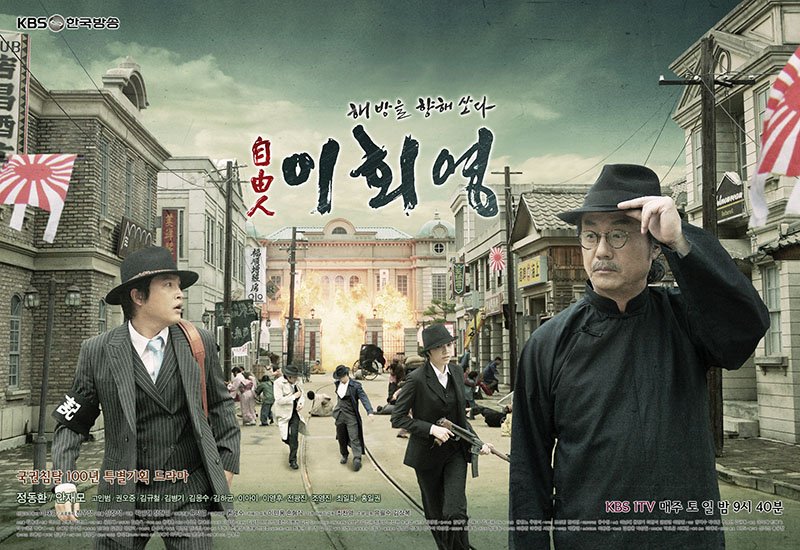
Based on the life of Lee Hoe Yeong, the drama is about one man's fight for freedom and his quest to train others for their revolution. Hoe Young fled Korea with his 5 brothers and moved to Manchuria where he started a school for independent activists and trained them. He'd secretly take units and attack places and people in the Japanese government in Korea in order to liberate his country. This drama follows his life and that of a Japanese journalist who is interested in what this man truly stands for - he seeks to know if he's just a murderer or if he really has morals in what he does. He finds out secrets of the Japanese occupation that he didn't know of before from Hoe Young, and his father (a high ranking official) acknowledges it. I think it's a very good drama special.
Quotes:
"Power does not last forever. If you let your foe intimidate you, the only thing awaiting you is defeat." - Lee Hoe Young
Inspiring Generation (2014)
Most of this drama takes place in the Japanese-occupied Shanghai, China (during the Japanese occupation they didn't just occupy Korea but parts of China and other places as well). The main lead studies fighting in order to protect the people he loves and fight for justice. There is the girl he loves and the girl who loves him back, the girl he met as a young boy who now has a love/hate relationship with him, and her bodyguard/teacher Shinichi ^^ My favorite character Mo Il Hwa - he literally runs the show in my book ;) So smexy lol and the girl who crushes on him. If you like action dramas set during this period of history then you'll enjoy this. Lots of fighting and martial arts skills as well as political rivalries.
Movies
The Sword With No Name (2009)
It's about the life of the last empress of Korea (Empress Myeongseong) who was assassinated in 1895 by the Japanese, but the King's father Daewongun was also involved in her assassination. The Japanese considered her to be an obstacle to their goal of colonisation. This movie will show not only her ending but her openness to foreign ways of dressing, foods, medicines and other such things - mainly shown are English or French people. It tells the story of the bodyguard who falls in love with her and who dedicates his life to protect her (this story is also mentioned in the movie Hanbando).
This movie depicts the power struggle between Daewongun and Gojong as well as the Empress. Gojong was reported to have said: "I would rather slit my wrists and let them bleed than disgrace the woman who saved this kingdom." Although the couple wasn't in love from the start and even disliked one another, in the later years they grew to love each other.
My Way (2011)
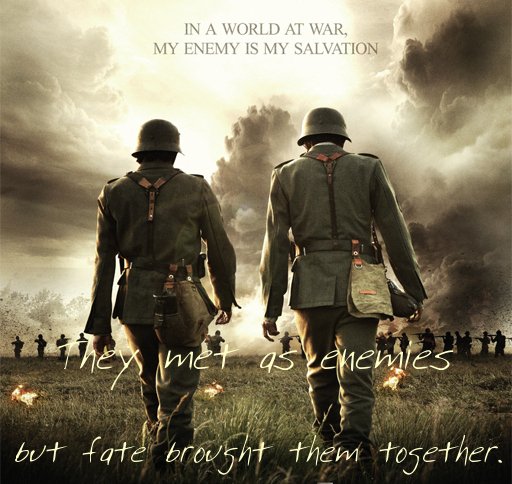
The movie starts out with the leads meeting as kids - one a servant's son of Joseon descent and the other a Japanese official's son (the grandson of the servant's master). One day a package is delivered (I assume) from someone of the independence movement and this puts a huge rift in the leads' relationship - going from friends to enemies in just a few minutes. They are both professional runners. Then one day they meet again. Because of the war, Jun Shik is forced to enlist, and soon after he meets Tatsuo as his head commander. Things weren't going so well for Jun Shik, but then they get captured by the Soviet army. During a battle, they escape and are dragged off and forced to join the German army. They become separated but meet once again in Normandy.
YMCA Baseball Team (2002)
It's a fictional comedic story based on the first baseball team to form in Korea. One day our lead accidentally kicks his "soccer ball" over the ridge into someone else's yard. The owners start to teach him about baseball, but the owners also have secrets of their own - they are a part of the independence army. Set in 1905 when the Eulsa Treaty was signed and goes to 1906.
The Good, the Bad, the Weird (2008)
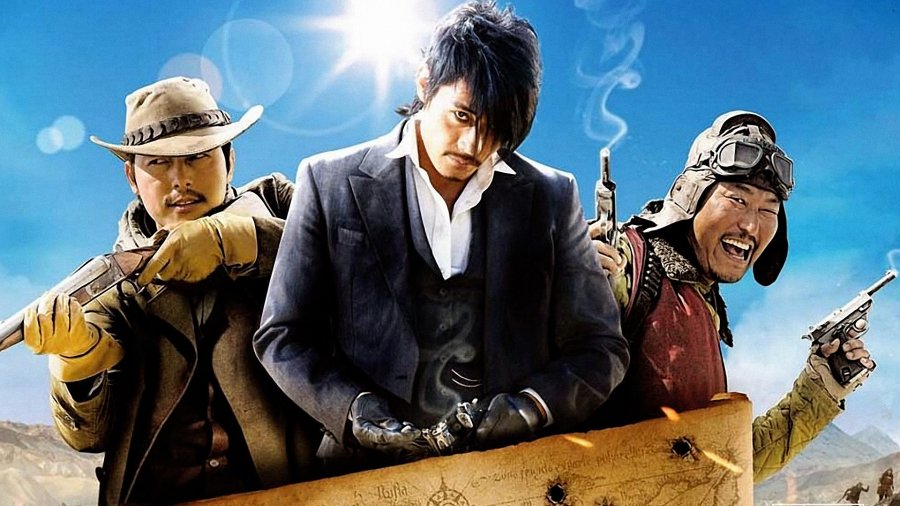
Set up like an old western movie, with plenty of chasing, gun fights, and seeing who's the winner in the end. Set in Manchuria China, where we have resistance fighters and bad people fighting over a "treasure map". It's just as the title says (in the order of the characters shown in this picture): the "good", the "bad" and the "weird". I personally liked the "good" the most, but the "bad" had a certain charisma about himself too (who am I kidding, it was probably just the hairstyle and the black clothing that appealed to me XD). I never cared for the "weird" one - to me he was just that... "weird". But overall it was an entertaining movie.
Quotes:
"If you chase something to get something, something else will come chasing you. Life is about chasing and being chased. There is no escape." - The Good
Revengeful Spirit (2014)
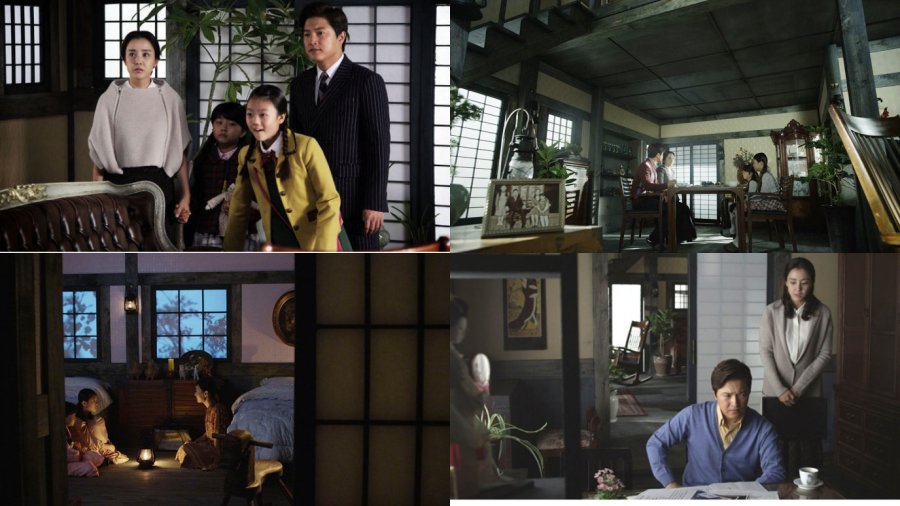
A pro-Japanese Korean man, who many independence fighters wanted dead, moves to a seemingly peaceful home given to his family from the Emperor of Japan in order to "be safe" from those who were wanting to kill him. But as they move in, his family starts to "see" things. Frightened by the house, they beg him to leave and go back home. However, he doesn't believe what they are telling him and this leads to unexpected and terrible things. A man who refuses to admit he was wrong is haunted by spirits.
The Last Comfort Women (2013)
"Comfort" women (basically sex slaves) were taken from their homes and brought to a foreign land and kept in a place where they could be "contained" and "used" for this sickening practice of men who couldn't keep it in their pants during the war. It's a harsh depiction of what some women would be tortured with and what cruelty wars can bring. It's quite graphic - so be warned.
Spirits Homecoming (2016)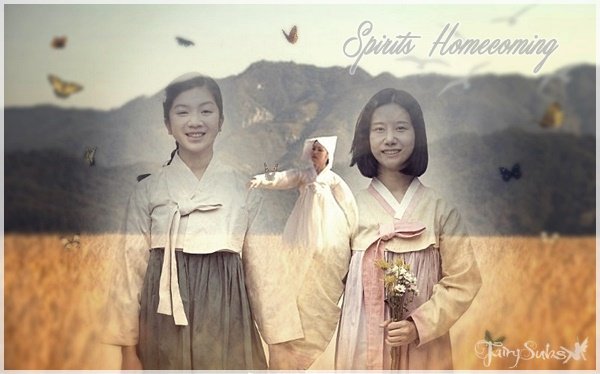
About young girls who are forcibly dragged off to Japanese sex camps (to be what they call "comfort women"). This story focuses on two girls who meet in the train on their way to China (where they will be stationed) and their friendship and pain, with alternating past and future scenes. The past shows what happened to them during their imprisonment, and the future shows how the one survivor lives and the young shaman who sees their past and calls the "spirit's home".
Modern Boy (2008)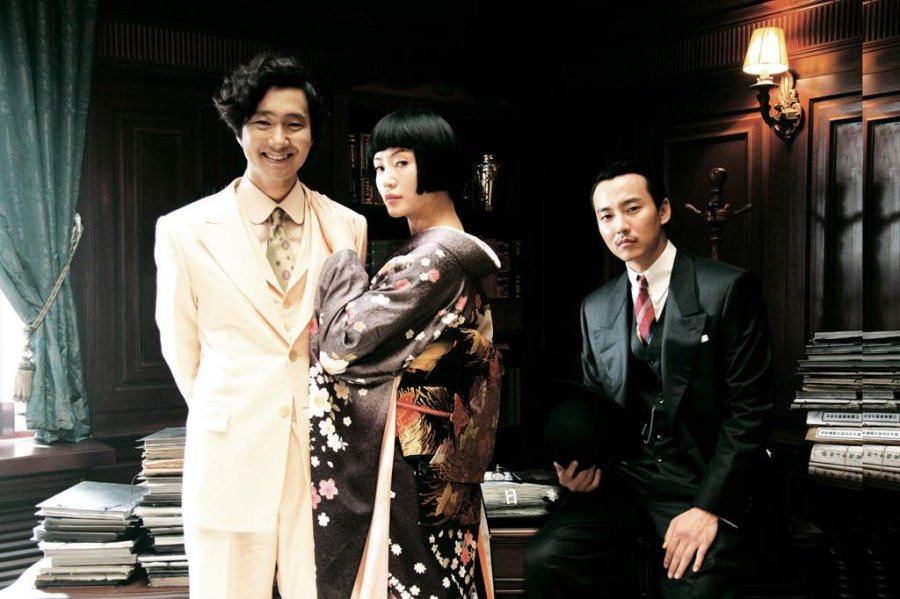
About a government general who falls for a mysterious woman after watching her dance at a cabaret with his best friend Shunsuke. He begins a love affair with her, but not too long after a package she hands him explodes inside a government building and she ransacks his house of valuables. He digs up information on her past and discovers all the previous identities she's held and all the suitors she's had. Nevertheless, he keeps digging up information on her and discovers something he never expected that will change his outlook on the life he's been living. - I could only find this on YT in very bad quality and no subs... it wasn't to my liking. I personally wouldn't recommend this one.
Snowy Road (2017)
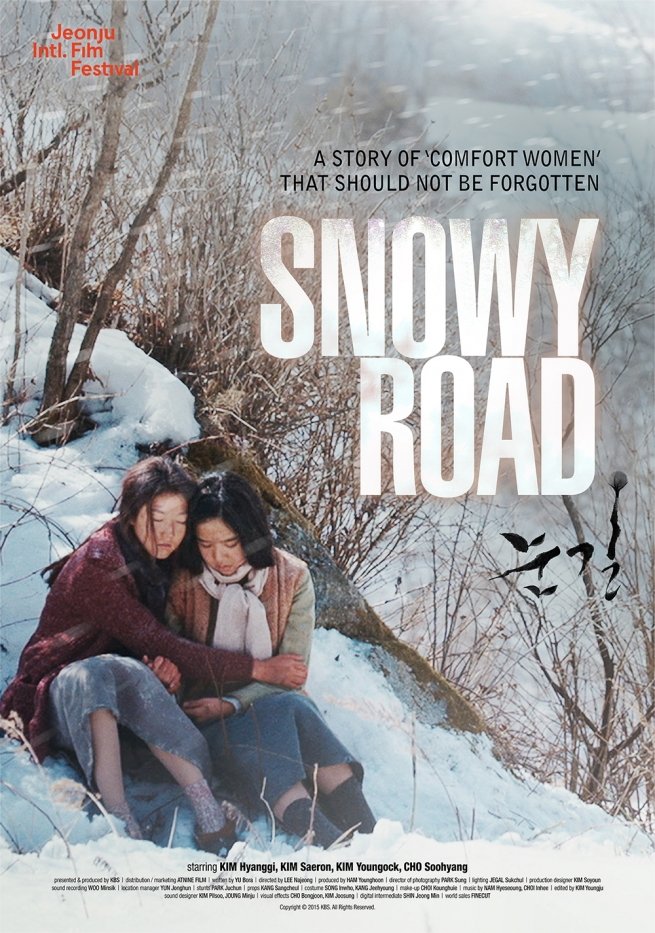
TRAILER // ARIRANG ABOUT // MV
Released March 1st (I haven't found it anywhere yet - so I'm assuming it's not officially released yet). About two girls' sad and beautiful friendship. One day they are taken as comfort women far from home and they only have each other for consolation. One was forcibly taken and the other tricked into going as a nurse (at least that is what I gathered from the MV). It also looks like one of the girls' brother is dragged off to war.
Documentaries
All of these videos below are good and worth watching if you are interested in learning more about this era and what the people experienced as well as getting factual insight on it. (Believe me, YT is loaded with a bunch of crap on this dished out from the opposite spectrum - these are the few good ones I managed to find and I wish I could find more on the in-depth policies, racial discrimination, and torture the people had to go through.)
"For the Japanese, it was a house of pleasure; for us, a hell of fear, shame & sorrow." - Ellen Van Ploeg
Comfort women
Comfort women served in Japanese military brothels as a form of sexual slavery. They came from all over the Japanese empire (occupied countries such as Korea, China and the Philippines), and some European women were also involved. Numbering between 10,000-200,000 but up to 500,000 are estimated to have been taken - the exact number of Korean women is unknown. These women faced an average of 29-40 men a day. Of the 500,000 only 50 are alive today. They were often recruited under the promise of factory or restaurant work, or falsely classified as nurses or secretaries. They were incarcerated in "comfort stations". The name "comfort women" is a translation of the Japanese ianfu (慰安婦), a euphemism for "prostitute(s)". They supposedly created this to try and "prevent" their soldiers from going out and raping people. But instead, this only fueled those kinds of crimes.
The first comfort station was established in 1932 in Shanghai and the earliest comfort women were Japanese prostitutes who volunteered for such service. However, as the Japanese expanded their military, they found themselves "short" of Japanese volunteers and turned to the local population and coerced or abducted young girls. The ones who were coerced did not know they were going to be pressed into sexual slavery. Most were taken from Korea and occupied China.
An overwhelming number of Korean girls taken came from poor households. Most survivors were left infertile because of the sexual trauma they endured. Beatings and physical torture were common. At least 80% of comfort women were Korean and were placed in the lower ranks while the Dutch and Japanese women were solely for the officers.
Many of these girls hadn't even reached puberty yet. Girls as young as 12 were taken. In some places, comfort women who were ill were abandoned to die alone, and some were executed for not "complying" with the reason they were there. Some even went insane.
In 1944-45, the Japanese government told the Japanese colonists that American "white devils" were cannibals, so many Japanese soldiers and even some comfort women committed suicide by jumping off cliffs in order to avoid being "eaten alive". "Japanese propaganda had it that the Anglo-American "white devils" were cannibals whose favorite food were Asians." British soldiers even reported that many comfort women were surprised when they found out they weren't going to be eaten.
Please check out -> Japanese Occupation of Korea ~ Part 2
Thanks for reading!

